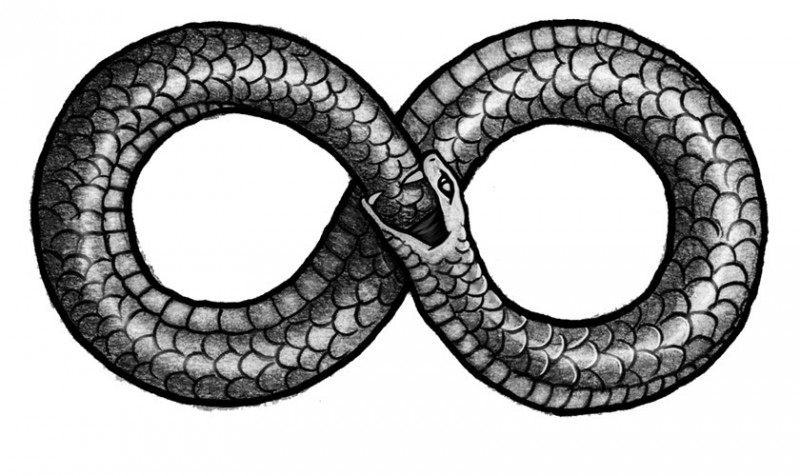Increased expression of a metabolic enzyme, phosphoenolpyruvate carboxykinase (PEPCK, an enzyme that most of us learned about in freshman biology and then promptly forgot, reasoning that the descriptive name and the ability to look it up if necessary would suffice if it ever came up again) results in mice that are muscular, have lower body fat than a runway model, and able to run 25 times farther than a wildtype control.
Even more interesting, according to proud parents Hanson and Hakimi, the females of the PEPCK-Cmus strain mate and have normal-sized litters at 35 months, an age when the blood of wildtype mice has cooled substantially (and, indeed, the mice themselves are starting to check out). The implication is that aging is slowed, and longevity extended, as a result of the transgene.
It’s become reflexive to ask whether a long-lived mutant is living longer because it’s calorie-restricted for some reason, incidental to the main phenotype conferred by the mutation, but this is not the case here: In order to preserve their enviable bods, PEPCK-Cmus mice eat 60% more than controls — so they’re not extending their lifespan by dieting. If anything, they’re anti-dieting: their increased metabolic efficiency means they’re harvesting more calories per gram of carb or fat than normal animals. No word yet on what happens if you do try to calorie-restrict them; I can imagine it going either way but am holding out hope for tiny explosions.
The PEPCK-Cmus seem to have it all: great bodies, long lives, extended reproductive and sexual lifespans, and no need to limit their appetites. The down side? Apparently, they are complete assholes: the mutants are aggressive and hyperactive, traits heretofore unheard-of among muscular, fit humans (and, indeed, in the field of biogerontology).
Rigorous lifespan and aging studies in these animals are ongoing, but are not yet complete, so the authors are reserving final judgment on the question of whether PEPCK-Cmus transgenics are bona fide longevity mutants. Hopefully we’ll have an answer within a couple of years. In the meantime, I hope they’re busily cross-breeding the transgene into short-lived DNA repair mutants — recently shown to induce longevity-assurance pathways in a last-ditch effort to stave off progeria — both to accelerate the progress of research and to see whether the metabolic benefits of PEPCK-Cmus might be used to treat premature aging syndromes.
(Hat tip to Longevity Meme.)

Holy crap! Still popping out babies at 35 months!? It’s pretty rare to have a normal mouse even live that long, much less still reproducing.
[…] gave some great gifts (with a few caveats); a protien to resist radiation (may cause cancer), an enzyme to live longer, slimmer and stronger (but anti-socially and so far only in mice), and a transcription factor that can reverse skin aging […]